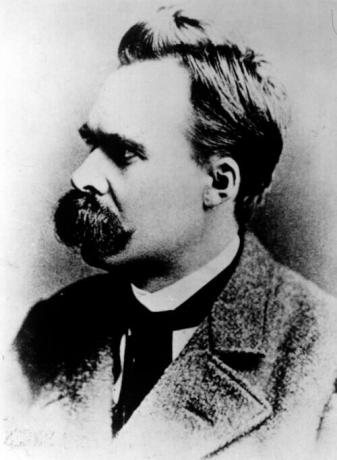In the period of human history known as the modern age, which begins with the Renaissance, it is very common to research and development of the term "representation" in various aspects, such as epistemological, political and religious. One of the first to devise a system of representation was the Englishman Thomas Hobbes.
Unlike Machiavelli, Hobbes considers mechanics (the study of motion in natural science or physics) as a model for his psychology and also for his sociology. He starts from the concept of isolated individuals, as atoms (which are immutable and eternal inorganic bodies) and makes the analogy with men in the real state of nature. It is this analogy that can explain social changes.
Thus, each individual reacts to external movements in an unconditional need. Viewed from the inside, human reactions present themselves as experiences, feelings and impulses. For Hobbes, all the affects we feel are effects of mechanical phenomena in our body and also in the outside world.
Following an empiricist tradition dating back to Aristotle, Hobbes understands that the human mind is totally devoid of any representation prior to experience. It occurs as follows:
- First, we have the sensation, which is isolated thought, an appearance of the quality of objects or accidents of those which are external to us and which act on the sense organs. The sensation is a first conception in the spirit of man and is caused by the movement that objects provide to the pressure (interact) with our organs, being, then, illusory and apparent, not being in the objects, but providing their;
- In second place we have the imagination, which is a diminished sensation, that is, passed. It is the illusion that is kept in the memory. The difference between the two is that imagination is witnessed and filed away while memory is just the memory of illusion in the present;
Do not stop now... There's more after the advertising ;)
- And finally, the experience, that is, a lot of memory or the memory of many things. Imagination is the result of the perception of sensation and when there is a lot of repetition, the future expectation is formed.
We can also understand in more detail according to the scheme below:
- Sensation:counterpressure of the object to our senses. It's the impression;
- Perception:understanding or understanding the sensation;
- Imagination: diminished sensation (simple or compound);
- Memory:on the diminution of sensation, fiction of the spirit;
- Experience: set of the various memories.
Also according to the author, dreams are caused by disturbances in some part of the body (internal) that cause different dreams for different disturbances. Dreams are the reverse of waking imaginations. With this, Hobbes criticizes religions and customs that stimulate strong imaginations, making people superstitious and unprepared for civil obedience.
We must understand, therefore, that for Hobbes, outside our mind there is only matter in motion, as if they were disorganized beams of light. When we capture these beams, the mind organizes this data, that is, it creates a world artificially through language (which is also artificial). Imagination takes place through words, signs and understanding. In the same way that you create an illusory world for yourself, individuals collectively can create a common world for themselves. And the common wealth, English term used by philosophers to designate a community, organized civil society or state.
By João Francisco P. Cabral
Brazil School Collaborator
Graduated in Philosophy from the Federal University of Uberlândia - UFU
Master's student in Philosophy at the State University of Campinas - UNICAMP
Would you like to reference this text in a school or academic work? Look:
CABRAL, João Francisco Pereira. "Materialism in Thomas Hobbes' Theory of Knowledge"; Brazil School. Available in: https://brasilescola.uol.com.br/filosofia/o-materialismo-na-teoria-conhecimento-thomas-hobbes.htm. Accessed on June 29, 2021.

